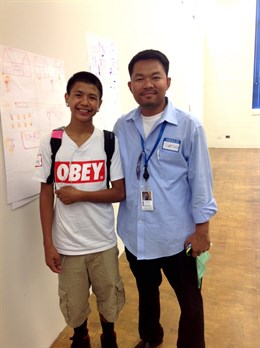Friday, September 20, 2013

One out of four adults in California is a high school dropout. In 2013 while producing Class Dismissed, CapRadio found that in the Central Valley, the numbers are worse. From May to Dec. 2013, CapRadio collaborated with a diverse group of community partners in San Joaquin County to engage residents in exploring the causes and impacts of school dropout.
Youth shared their stories via the RView209 community blog.
Community partners facilitated 34 community dialogues involving over 450 Stockton area residents in listening to and learn from one another’s experiences.
Click here to learn how project partners strengthened community ties and engaged residents in local problem-solving.
Want to start a dialogue about school dropout in your community?
Everything you need to host a community dialogue on high school dropout is right here. Scroll down for background information, discussion questions, and audio clips. Download the discussion guide for instructions. For more information or to host a dialogue in your community contact jesikah maria ross.
Downloadables
Dropping Out
On average, 25% of California students drop out of high school every year. Suspension and expulsion increase the risk of dropping out. Students who don’t learn to read in elementary school and fall behind in their studies are also at high risk. But students give many reasons for dropping out: poverty, pregnancy, needing to care for a sick or needy family member, needing to get a job and help with family finances, failing to pass the exit exam, violence and bullying, drugs and gangs. Health problems that contribute to absenteeism also increase the risk of dropping out.
Discussion Questions
-
What stood out to you about those stories?
-
Why else do youth dropout?
-
How do you think dropping out will impact these young people’s lives?
-
Does anyone have a friend or family member who dropped out? Why did they leave school?
-
What are the reasons that your friends or family have stayed in school to earn a diploma?
-
What kind of support do students need to complete a high school education? Where can they find this support?
-
Why is school dropout an issue all Californian’s should care about?
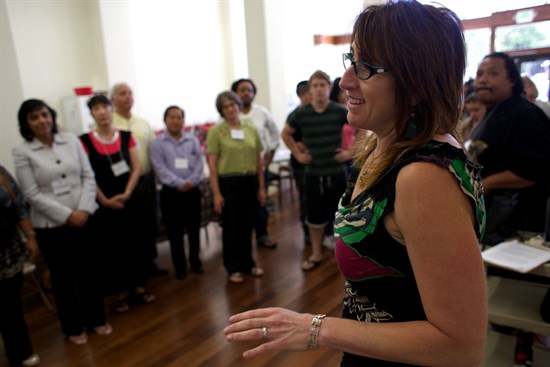
Life Lessons
Life can be tough. Across California young people and their families struggle with poverty and violence in their communities. Young people are faced with tough choices about risky behaviors such as smoking, drinking, using drugs, joining gangs and engaging in unsafe sex. Families and schools play an important role in helping young people form values and habits that will assist them to grow into healthier adults. Education can be a pathway to success, but only if students find the support they need to stay in school.
Discussion Questions
-
What did you appreciate about those stories?
-
What other obstacles make it hard for youth to stay in school?
-
Has anyone had a similar experience to the youth in those stories? What happened?
-
What does it mean to say that education opens doors or is a pathway to a successful future?
-
How can life’s lessons, barriers or obstacles provide the motivation to stay in school and graduate?
-
Can anyone share a story about someone who has completed their high school education and is on the way to realizing their dreams?

School
The majority of students who drop out of high school do so in their senior year. That’s when students realize they don’t have the credits to graduate or they fail the exit exam. But the problems that lead to dropout begin long before high school. For example, students who don’t learn to read by third grade are more likely to drop out of high school. Students can fall behind due to poor health, hunger, homelessness and moving from school to school. Bullying, lack of parental support, lack of teacher support and getting lost in the crowded classrooms of large traditional high schools contribute to students not feeling safe and supported at school.
Discussion Questions
-
What caught your attention in those stories?
-
Does anyone have a friend or family member who dropped out? Why did they leave school?
-
What could your school do better to help students feel more connected to their education?
-
What is your school doing well that helps students feel connected and successful at school?
-
When a student drops out, how much of the responsibility for that action belongs to the family? How much responsibility belongs to the school?
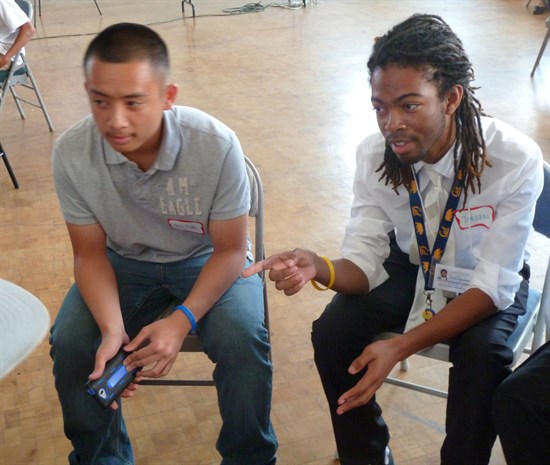
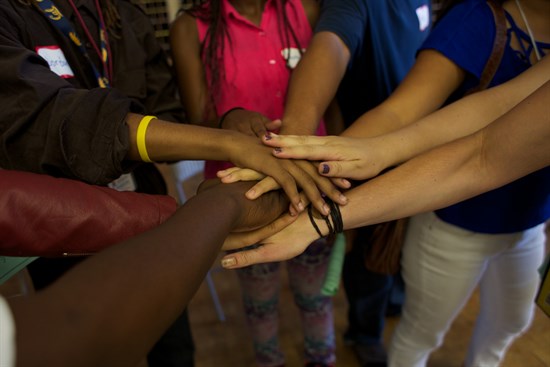
Family
Family values influence all of us, one way or the other. For example, when families place a high value on education, studies show that the children of that family have a better chance at graduating from high school. When children lack educational role models, it may be difficult to see themselves as successful graduates. In addition, the challenging conditions associated with family poverty – high mobility and homelessness, hunger and food insecurity; parents who are in jail or absent; domestic violence; drug abuse and other problems –lead to lasting impacts on learning.
Discussion Questions
-
What did you notice about those stories?
-
What can families do to help their children to graduate from high school?
-
What knowledge or skills do parents need to help their children to graduate? Where can they go to get these resources?
-
If family members are not supportive of a student’s educational goals (for any reason), where else can students find support?
-
When a student drops out, how much of the responsibility for that action belongs to the family? How much responsibility belongs to the school?
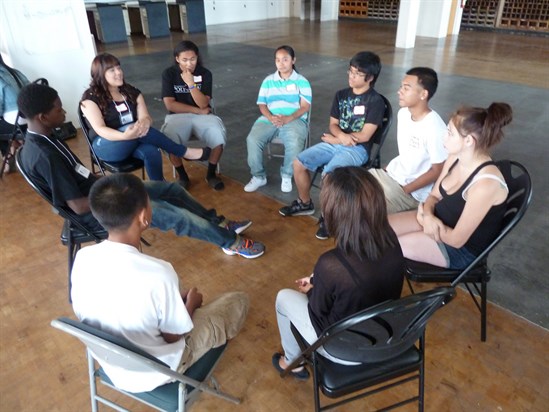
Teen Pregnancy & Parenting
Pregnancy and teen parenting are major reasons that young women drop out of high school. The Public Policy Institute of California reports that although teen birth rates have fallen dramatically in California over the past decade, San Joaquin Valley rates are more than twice as high as those in other regions of the state.
Mrs. Becky Beeman, director of an area teen parenting program, says many of the young women in her program come in with broken foundations. “Meaning the people that were supposed to be in their lives and support them and give them love and attention were either missing or dysfunctional and not able to provide the love that they should’ve had - parental love.” She says her program is about instilling confidence, building a support network and connecting school and family.
Discussion Questions
-
What did you appreciate about those stories?
-
Why do you think so many young women become pregnant?
-
How do those stories relate to the experiences you or your friend’s have had?
-
What kind of support do teen parents need from the adults in their communities? Where can they find those resources?
-
Is preventing teen pregnancy important to you? Why?
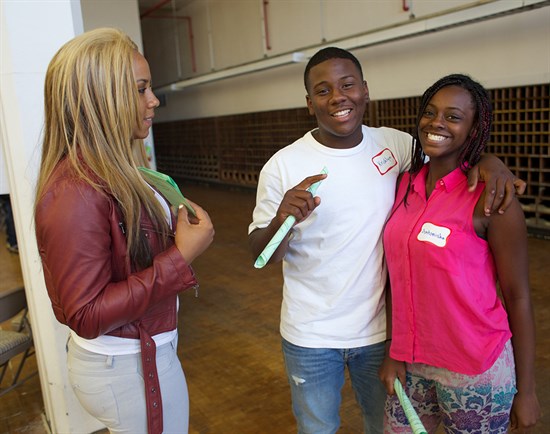
Gangs, Drugs, & Crime
High school dropouts are twice as likely to commit crimes as high school graduates. The California Dropout Research Project reports that cutting the dropout rate in half would reduce the number of juvenile crimes in California by 30,000 and save the state $550 million per year.
Dropouts are also reported to have an increased risk of substance abuse (cigarettes, alcohol and drugs) leading to life-long health problems. The principal of an alternative charter school in the Central Valley says that the combination of gangs, drugs, poverty and dysfunctional families is a recipe for disaster.
Discussion Questions
-
What did you hear that struck a chord for you in those stories? Why?
-
Why do think youth get involved in gangs, drugs or crime?
-
How do you see the connection between gang, drugs, crime and youth dropout?
-
How do those stories relate to the experiences you or your friends have had?
-
Do you think gangs and drugs are a personal or a community problem?
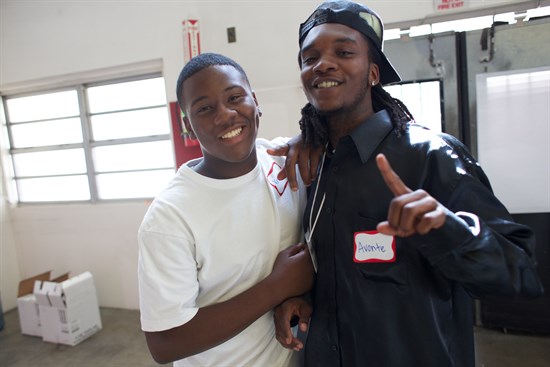
Advice From Youth
Adults are full of advice. And although they may have the advantage of experience, sometimes the message is more powerful coming from a trusted peer. Youth who have “been there, done that” often make the best case for the value of education. Listen to these words of advice from high school students and young people on subjects such as growing up with parents who abuse drugs, facing peer pressure at school and in the street and finding the inner strength to set your own life goals.
Discussion Questions
-
What did you notice about those stories?
-
Did anything surprise you about the advice these youth shared?
-
What other advice would you offer to youth about staying in school?
-
What do these stories tell us about young people’s lives today?
-
Where do you get the best advice: from family, friends, teachers, church leaders, social media/Internet or another source?
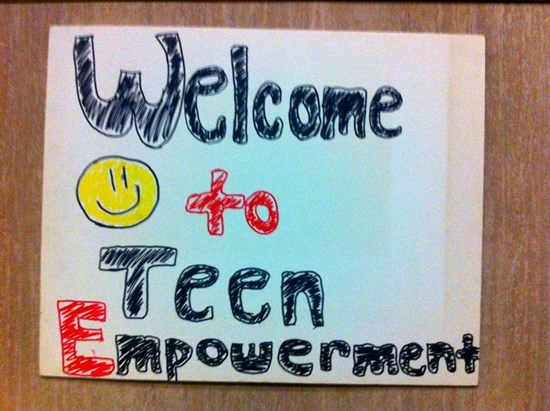
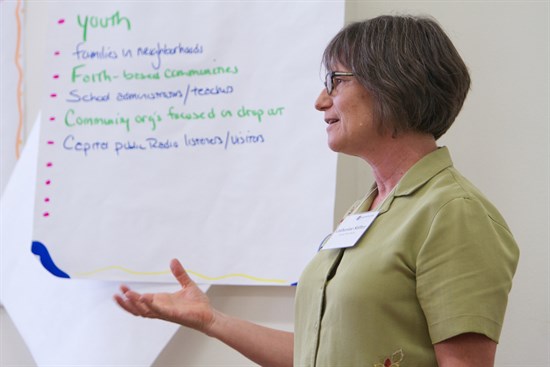
Success Stories
Graduating from high school is high on the list of what it takes to be successful. In the Class Dismissed project, most of the young people we interviewed said that the most important factor in their academic success was finding a connection with a teacher or staff member at school. That connection made the difference to help them stay in school. Another factor that influenced the decision of students to stay in school and graduate was the value that parents placed on obtaining a diploma. For dropouts who want to return to school, being paid to learn a skill while completing credits towards graduation is an incentive.
Studies show that overall, those who drop out of high school are less healthy, less wealthy and less likely to find a job. Dropouts are more likely to commit crimes and rely on public assistance programs and public health programs than their peers who graduate.
Discussion Questions
-
What stood out to you about those stories?
-
What does it take for a high school student to be successful these days?
-
Thinking about a time that you were successful in school (grades, performance, sports, etc), what did you believe about yourself that lead to your success?
-
Thinking about a time that you were unsuccessful in school, what beliefs, emotions and events contributed to the challenge you faced?
-
What resources are in the community to help youth overcome challenges and graduate?
